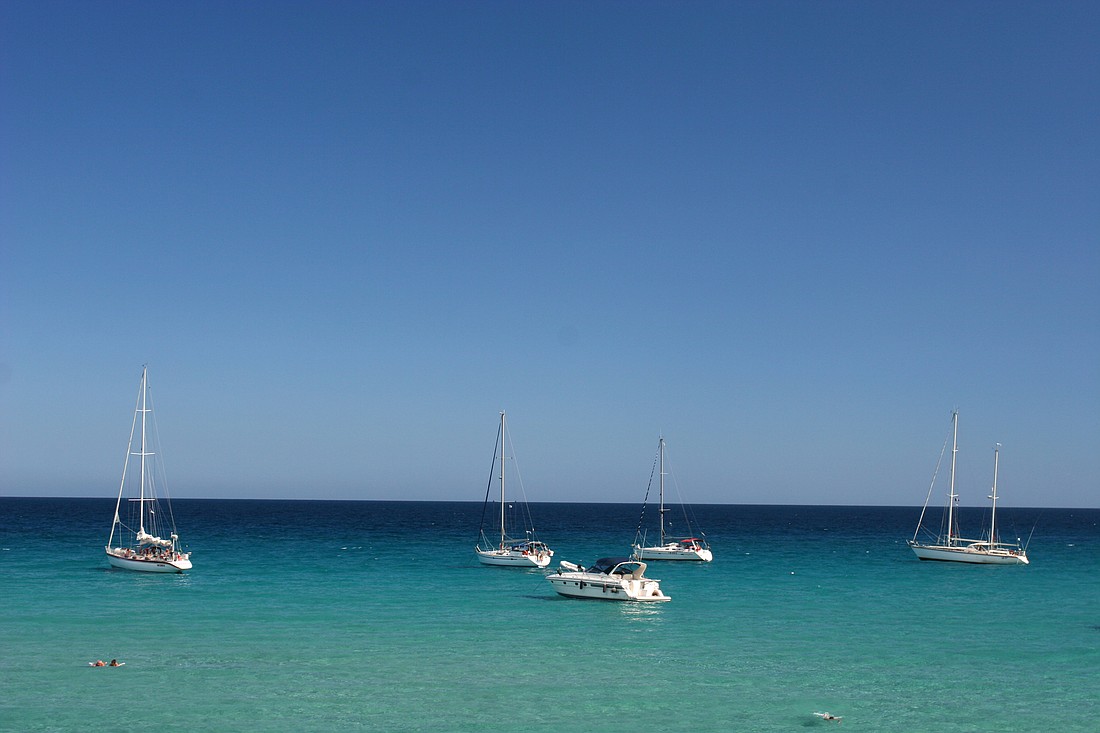- April 23, 2024
-
-
Loading

Loading

Owners of boats at risk of becoming derelict would be able to rid themselves of the vessels at no cost under a state program.
The Florida Fish and Wildlife Conservation Commission on Thursday advanced rule changes for the “Vessel Turn-In Program,” which is intended to help speed the removal of privately owned boats that have been abandoned, wrecked, junked or substantially dismantled in state waters.
Travis Franklin, a captain with the commission’s Division of Law Enforcement, said derelict vessels plague waterways across Florida, cause damage to sensitive fish and wildlife habitat and raise concerns for public safety.
“Leaving a vessel on the water in the derelict condition is a crime,” Franklin said. “Whether the vessel is sinking hard aground, stripped of vessel components, or missing vital operational systems such as steerage propulsion or hull integrity, the result is the same. Derelict vessels create a risk to the residents, visitors and natural resources of Florida.”
State lawmakers this year increased funding for the removal of derelict vessels from $3.5 million to $8.2 million, after earlier giving law enforcement more authority to address at-risk vessels that have no effective means of propulsion and have taken on water or are on the verge of becoming unanchored. The commission also anticipates receiving money through the federal American Rescue Plan Act stimulus law to help with removing derelict vessels.
The Vessel Turn-In Program would be open to people who in the past 18 months have received notices three times for at-risk conditions. The people couldn’t owe money on the boats.
“This is probably one of the best things that has come out of Tallahassee, in reference to these vessels, trying to get them before they get to the point where it costs a lot of money,” Jim Suber of the Jacksonville Waterways Commission said.
Fish and Wildlife Commission member Sonya Rood suggested reviewing the 18-month time frame as the program progresses.
“I do find that 18 months is a little long,” Rood said. “I think, when you have an issue, that you should definitely address it quicker than 18 months, especially something that's important.”
For participants in the program, the commission will declare vessels a public nuisance and pay for removal from the water and eventual destruction.
Franklin said being able to remove vessels still considered “at risk” and floating, rather than fully classified as derelict, is significantly less expensive.
The commission is currently handling 730 derelict-vessel cases.
Since last July, the commission has removed 78 derelict boats from waters in Monroe County, 33 from waters of the West Coast Inland Navigation District in Southwest Florida, 11 from the waters of Escambia County and another 11 in Duval County, Franklin said.
“Officers are keeping a watchful eye for derelict vessels while on patrol, and new DVs (derelict vessels) are identified on almost a daily basis,” Franklin said.
Commission Chairman Rodney Barreto suggested the commission also include information about donating vessels to charities to get some at-risk craft out of the water.
“We should kind of like enlighten the public that there's avenues,” Barreto said.